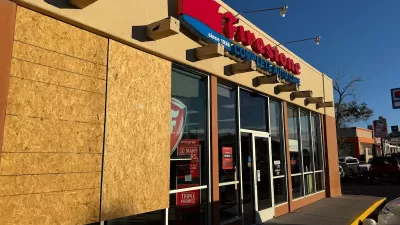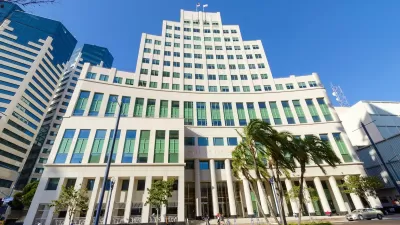Frank Greene and Kenneth Ricci discuss the changing paradigms of half a century of justice architecture and what we should ask — and expect — from courts and jails.

Like hospitals, stadia, and shopping malls, the structures of the criminal justice system demand complex spatial considerations, and architects specialized in meeting them. But with individual lives and liberties in the balance, buildings like courts and jails inspire ethical questions and social consequences beyond the scope of other public structures. Frank Greene and Kenneth Ricci, principals of New York based RicciGreene Associates, provide architectural and planning services for courts, jails, and juvenile detention facilities in the region and across the nation. Over five decades in the practice of justice architecture, they have witnessed a succession of approaches to corrections and detention, from rehabilitation to punitive mass incarceration, and back to rehabilitation. While some of today’s best practices are nothing new, signs of growing support for smaller-scale, local, and more humane approaches to incarceration today are encouraging. Below, Greene and Ricci talk about the roles courts and jails play — and should play — in the criminal justice system and in how cities and counties address pressing social problems. And they outline their role as justice architects, not only in designing environments to cue desired behavior, but using planning tools to change the minds and actions of clients who want to build more and bigger jails.
FULL STORY: What Jail Can't Do

Maui's Vacation Rental Debate Turns Ugly
Verbal attacks, misinformation campaigns and fistfights plague a high-stakes debate to convert thousands of vacation rentals into long-term housing.

Planetizen Federal Action Tracker
A weekly monitor of how Trump’s orders and actions are impacting planners and planning in America.

Chicago’s Ghost Rails
Just beneath the surface of the modern city lie the remnants of its expansive early 20th-century streetcar system.

Bend, Oregon Zoning Reforms Prioritize Small-Scale Housing
The city altered its zoning code to allow multi-family housing and eliminated parking mandates citywide.

Amtrak Cutting Jobs, Funding to High-Speed Rail
The agency plans to cut 10 percent of its workforce and has confirmed it will not fund new high-speed rail projects.

LA Denies Basic Services to Unhoused Residents
The city has repeatedly failed to respond to requests for trash pickup at encampment sites, and eliminated a program that provided mobile showers and toilets.
Urban Design for Planners 1: Software Tools
This six-course series explores essential urban design concepts using open source software and equips planners with the tools they need to participate fully in the urban design process.
Planning for Universal Design
Learn the tools for implementing Universal Design in planning regulations.
planning NEXT
Appalachian Highlands Housing Partners
Mpact (founded as Rail~Volution)
City of Camden Redevelopment Agency
City of Astoria
City of Portland
City of Laramie





























